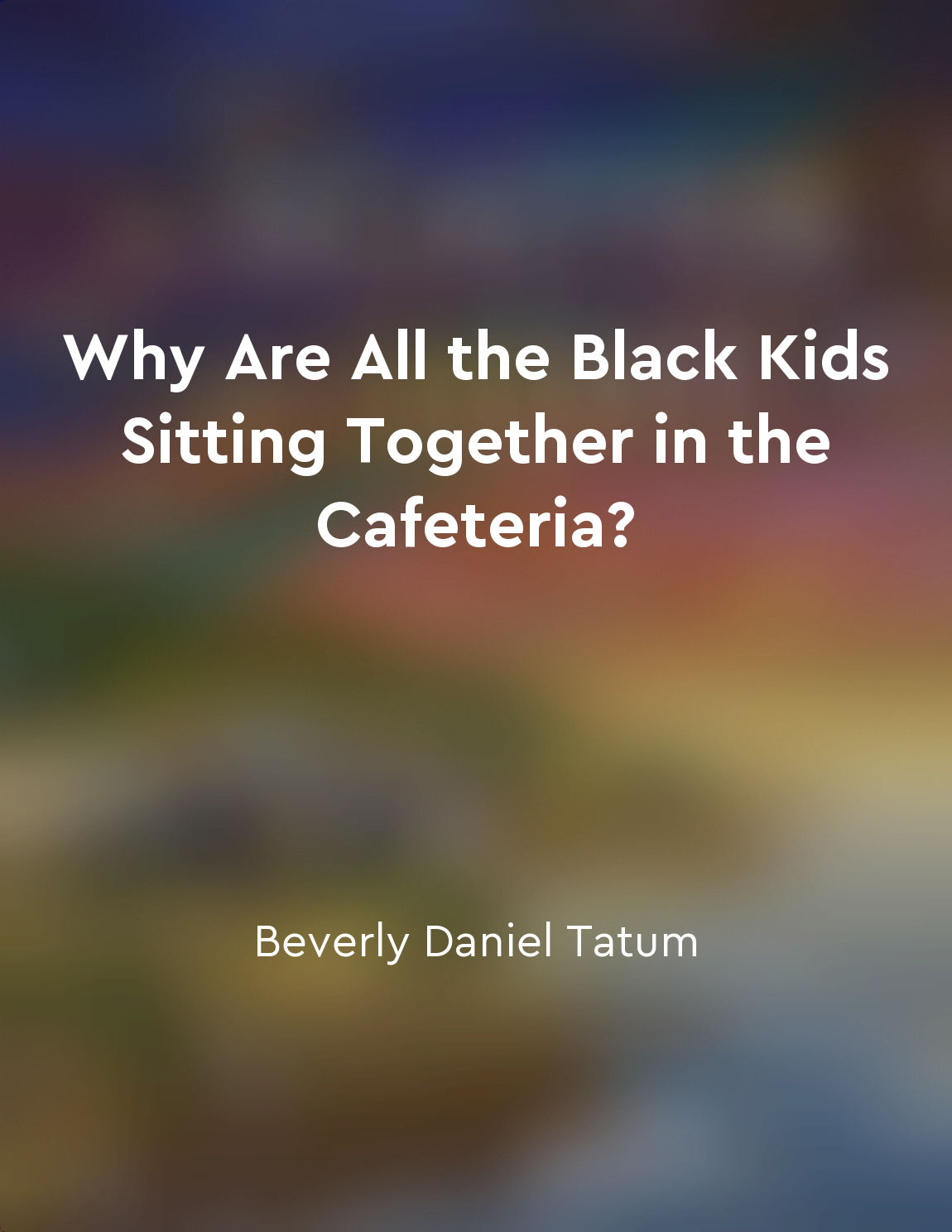Dismantling white supremacy is a collective responsibility from "summary" of So You Want to Talk About Race by Ijeoma Oluo
When we talk about dismantling white supremacy, it is important to understand that this is not a task that falls solely on the shoulders of people of color. Yes, people of color have been fighting against white supremacy for centuries, but the responsibility for dismantling white supremacy lies with everyone. It is a collective responsibility that we all must take on if we truly want to see change. White supremacy is a system that benefits white people at the expense of people of color. It is a system that is deeply ingrained in our society, and it affects every aspect of our lives, whether we realize it or not. In order to dismantle this system, we must all be willing to confront our own biases and privileges. We must be willing to have difficult conversations and challenge the status quo. It is not enough to simply say that we are not racist. We must actively work to be anti-racist. This means actively working to dismantle the systems of oppression that benefit us at the expense of others. It means using our privilege to uplift marginalized voices and create a more just and equitable society for all. Dismantling white supremacy is not easy, and it is not something that can be done overnight. It requires a commitment to ongoing education, self-reflection, and action. It requires us to be willing to be uncomfortable and to make mistakes. But it is a necessary task if we want to create a more just and equitable society for all.- Dismantling white supremacy is a collective responsibility that we all must take on. It is not enough to simply be non-racist; we must actively work to be anti-racist. We must be willing to confront our own biases and privileges, and we must be willing to challenge the systems of oppression that benefit us at the expense of others. Only then can we truly begin to dismantle white supremacy and create a more just and equitable society for all.
Similar Posts

Importance of cultural heritage
Cultural heritage is the essence of a people's identity, the thread that connects the past to the present and shapes the future...

Black students may face unique challenges in predominantly white schools
The experience of black students in predominantly white schools can be particularly challenging for a variety of reasons. One k...
Confronting the legacy of apartheid in his own family
Growing up in South Africa under the oppressive system of apartheid, Trevor Noah had to confront the legacy of this dark period...
Cultural norms can reinforce gender inequality
Cultural norms play a significant role in shaping societal expectations and behaviors. For centuries, these norms have been use...
Childhood in apartheidera South Africa
During my childhood in apartheidera South Africa, being born to a black mother and a white father made me a living testament to...
Commitment to social justice and equality
Malcolm X's unwavering dedication to social justice and equality is a central theme throughout his autobiography. From his earl...
Neoliberalism reinforces inequality
Neoliberalism is a set of policies that have become dominant in the world over the past four decades. These policies have aimed...
Expanding
At the heart of modern cosmology is the concept of expanding. Our universe is not static, but rather in a state of continual gr...
Coates highlights the impact of systemic racism on black communities
In America, the belief in the white race's superiority has historically justified the exploitation and oppression of black peop...
The Dream is built on the oppression of black people
The Dream is built on our backs, the bedrock of this country. We were the foundation upon which it was built, the bricks that c...


